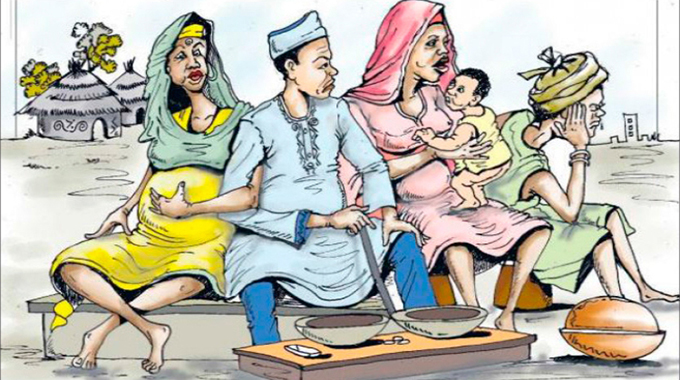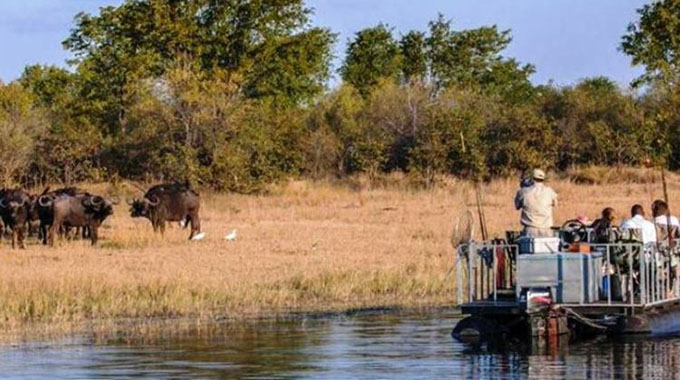The town visit that ended in tears II
After travelling all the way from the village to town, for the first ever time, this village boy found Auntie K’s place in Mvurwi after a lengthy sunset search. The silhouette sunset gave the Mvurwi Township a golden hue.
This villager confidently entered the yard and about that time Auntie K came from the core house, pot in one hand and cooking stick in another.
She tended the fire, her eyes flickering around blindly from the resultant smoke.
She looked up and saw this little village boy standing studiously, unmoving.
She was irritated and about to send the boy off, when she realised it was this villager.
“Ooooh, is that you? Why are you here my brother’s son?.”
“To see you auntie as per your invitation that time you came to the village!” exclaimed this village boy, joyously. Well that is very nice of you. But why did you not come in the morning? I am sure it is late now and I need to take you back to terminus so that you don’t miss the last bus to Guruve. But, all the same, thanks for coming to see me,” she heartlessly declared.
Without being allowed to enter the house and without even a glass of water, she walked the village boy to the terminus.
“I could not allow you into the house because no one will clean your footsteps for me. I have neither a child nor a maid,” she continued.
Soon the bus arrived and this villager boarded, boiling inside and feeling betrayed, rejected and dejected.
The journey from Mvurwi seemed a thousand miles until the bus ground to a rattling halt at Muzika School and there the village boy alighted, tail between his legs.
This villager took a footpath through Muzika Village, the smell of cooking food wafting across and miffed voices talking in the homesteads.
Dogs barked intermittently but this villager moved on. Soon the moon rose from Siyalima to the east, tinging the earth golden. Finally the villager got home.
Everyone was surprised except his father, Auntie’s blood brother. After narrating the story amid sobs, this villager’s father remarked:
“Yes, that is my sister for you. I go to Mvurwi for my salary at the bank every month end but I don’t go to see her. She once did that to me. She has done it to many other people. She doesn’t like people at her home.”
About 15 years later, ancestors’ exhaust-less generosity thrust this villager into journalism. Soon this villager was on radio and all over newspapers and had buried Auntie K into the abyss of history and condemned her with the contempt she deserved.
During that period, this villager had travelled past Mvurwi a thousand times never imagining visiting Auntie K.
One wintry morning this villager received a phone call and, guess what? . . . it was Auntie K on the other end of the line? I had never talked to her since that first visit to town and never expected a call from her.
There was excitement in her voice but somehow there was an after taste.
“I have read your stories in newspapers and I keep a lot of cuttings. Many people tell me you drive past Mvurwi every weekend going to Guruve and back. Are you sure you can pass through this place so many times without seeing me . . . Are you sure? But why, my brother’s son, why? I wish you knew how proud I am of you. I tell everyone here that you are my brother’s son and they think it’s a joke. They don’t believe me,” she seemed to be sobbing.
After careful consideration, this villager drove off to Mvurwi and the small town had not changed much. With much ease, the place was found. There she was, looking sickly and fragile but still managing to pull a smile. She took this villager inside the house without hesitation. On the doorstep, the villager tried to rub clean the underneath of the shoe on the mat but Auntie said, “never mind.” There we sat, in a small core house that had never been electrified. She could not afford although her neighbours had all electrified theirs.
There she was a pale shadow of her past and a ghostly figure. But she still smelt good! She used nice perfume. Cuttings of this villager’s stories were pasted on the walls, some of them discoloured by exposure.
She excitedly made introductions and requested that I show them by national Identity card to prove that it was really me, her bloody brother’s son. That was followed by a shopping escapade where she picked whatever she wanted for this villager to pay. Then back home, she started dishing out her secrets. She was out of job had become HIV positive and finding it hard to access treatment those years. I offered to pay for all her bills eternally and to buy her groceries every month.
She had no children and wanted this villager to be administrator of her small estate in the event of her death.
Since this villager was leaving for the US for three weeks, most of the things would be cleared on return, we agreed. But the ARV’s were urgent so I gave her cash for it. When I returned three weeks later, Auntie K had died and had been buried at Nhamoyebonde Village. I wished I had done more to save her life.









Comments